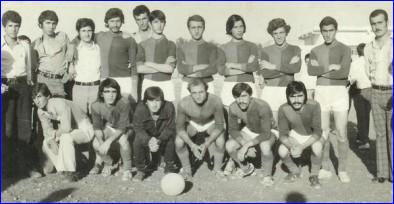


 Assyriska)
Assyriska)
Few people outside Sweden know that several other Assyrian football teams compete with Assyriska FF for the title as the Assyrian national diaspora team. First among them is the team set up by the large and well organized Assyrian community of Gothenburg, under the name of Assyriska BK. A sense of brotherly competition has always existed among the two teams even as Assyriska BK climbed and are now playing in the same league as Assyriska FF, in the Swedish third division.
Closing in on both Assyriska FF and Assyriska BK is the club set up by the Assyrians of the town of Norrköping, Assyriska IF which is also set to reach the third division. Several other Assyrian teams exist in the lower divisions in various Swedish towns Assyrians have settled in since the 1960s.
Related: Football, Politics and Assyrian National Identity
Related: Assyrian National Soccer Team Losing Its Nation
Related: Assyrian Teams Form Unique Football Rivalry in Sweden
While the many different football clubs are a reflection of the strong will and commitment of the Assyrian- Swedish community, there are worries that soccer is draining the resourses of the community. Money that could be invested in charter schools for Assyrian children, cultural activities such as music festivals and summer camp, are being drained up by the football clubs.
The worries have increased as Assyriska FF has experienced a series of serious setbacks, bringing the club close to liquidation. Internal schisms have led to a brain drain, with most of the experienced personnel leaving the club leadership early in 2017. Embarrassing news reports in Swedish media of unpaid salaries, accusations of match-fixing, debts to the tax authorities, municipality and providers amounting to millions of Swedish kronor have plagued the club. Once the pride of the Assyrian-Swedish community the team today attracts only a fraction of the match-goers, exacerbating the economic difficulties.
While football clubs continue to be a vital part of the Assyrian-Swedish collective, there are signs the community is looking to shift its focus away from sports to culture, education and political activism. Driving this shift is a realization that culture and education are much more vital for securing future generations in face of assimilation, even as the community is celebrating fifty years of presence in the Nordic country.

or register to post a comment.